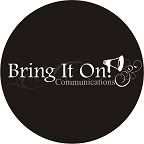Life offers so many choices that it can be confusing when navigating through this world. In ‘The Life Ready Woman: Thriving in a Do-It-All World ’ by Shaunti Feldhahn and Robert Lewis provide a blueprint to help women make decisions that will be pleasing to the Lord.
’ by Shaunti Feldhahn and Robert Lewis provide a blueprint to help women make decisions that will be pleasing to the Lord.
Here is the synopsis of this interesting and practical book :
:
This is a great day to be a woman…even when you’re trying to balance it all! We have amazing choices and opportunities could never have been imagined. Yet we also encounter a whole new host of challenges.
Every woman knows the feeling of struggling to juggle everything, wishing there were more hours in the day. And every woman has also enjoyed the wonderful opportunities God provides that simply didn’t exist a few generations ago. The trick is knowing how to manage this crazy, modern life. For those of us who follow Jesus, the challenge is even greater. How can we live a modern life from a biblical perspective?
The great news is: there’s a way to do this! There is a way to be “ready” for life that leads to peace and enjoyment rather than stress and regret. Within the ancient words of the Bible we can find a road map that applies directly to our lives as contemporary women: an encouraging , life-giving blueprint you can look to for clarity about the unique design, callings, balance, choices, relationships, and direction that God has for you.
Becoming “Life Ready” involves thinking purposefully about subjects you may never have thought through before. It involves courageous steps of faith at some points, and waiting for open doors in others. But the end result will be that you not only survive but thrive in our do-it-all world. Being a “Life Ready” woman means you are clear about your life, bold in your faith, and able to find God’s best for you. No matter where you are – younger, older; single, married, divorced, remarried; stay-at-home mom or busy executive; no matter your ethnic background or even your personal faith beliefs or questions – you can start today to reach for it. The Life Ready Woman will guide you there!
Here are the biographies of these authors:
Shaunti Feldhahn is a former Wall Street analyst, best-selling author (For Women Only , For Men Only
, For Men Only , For Couples Only
, For Couples Only , The Male Factor
, The Male Factor ), national speaker, and regular commentator in the media. She and her husband live with their two children in Atlanta, Georgia.
), national speaker, and regular commentator in the media. She and her husband live with their two children in Atlanta, Georgia.
Robert Lewis is the visionary leader behind the Life Ready series of video studies. He is a pastor, best-selling author (Rocking the Roles: Building a Win-Win Marriage ), and the founder of the popular Men’s Fraternity Bible study movement. He and his wife have four grown children and live in Little Rock, Arkansas.
), and the founder of the popular Men’s Fraternity Bible study movement. He and his wife have four grown children and live in Little Rock, Arkansas.
In the Introduction, entitled ‘Being Life Ready,’ the authors explain the situation women find themselves in these days:
It is a great day to be a woman. The choices and opportunities available to women in the twenty-first century are amazing – opportunities that could never have been imagined one hundred years ago. Yet we also encounter challenges that our great-grandmothers could never have fathomed.
Every woman knows the feeling of struggling to juggle and balance everything and watching our friends and loved ones do the same. Every woman has looked at the clock and lamented that there just aren’t enough hours in the day. And every woman has also enjoyed the wonderful opportunities God provides us that simply didn’t exist just a few generations ago. The trick is to know how to manage this crazy, modern life. And for those of us who are followers of Jesus, to know how to manage our modern life from a biblical perspective rather than an ever-changing cultural one.
The good news is: there is a way to do this! There is a way to be “ready” for today’s modern life in a way that leads to peace and enjoyment rather than stress and regret. There is a way to help other women do so, too. No matter how crazy your life is, there is a solid, encouraging, and empowering guide that we can find in the ancient words of the Bible that applies directly to our life today as contemporary women. (p. 3)
Shaunti shares how she has struggled to balance her life as an author, researcher, traveling speaker, wife, and mother to two small children:
And privately, for years, I have been town by how to balance it all, how to keep all the plate spinning. With this biblical blueprint, I finally feel like I have a clear and realistic model that I can look up to and respect as a modern Christian woman, something that can help me make the decisions that will lead to relief, delight, and fulfillment instead of regret.
That doesn’t mean those decisions are easy. For me it has meant a willingness to reexamine some professional opportunities in light of personal ones. For others it may mean examining whether you are fully using your unique God-given gifts for the impact He intends you to have. But once you make these decisions, they will fit. You will feel like you are finally functioning in the ways for which you were designed.
Be willing to be challenged, sister! The end result will be worth it. (p. 8)
Sounds good to me!
The first part of the book outlines God’s plan and purpose for all of us. He wants us to live the life He created us to live:
So how do you discover God’s best for you? Where is the help that can cut through the fog to help you decide how to live smart and well? I think all of us would agree that God wants us to find His best for us. He wants us to be what the Life Ready theme summarizes: women who are clear about our lives, bold in our faith, and able to find God’s best for us! But the question is how we do it.
Unfortunately, today there is a lack of discipline and “life coaching”(the kind mentioned in Titus 2) that offers trustworthy navigational guidelines to assist women in discerning which choices are best and which, however alluring, might be empty promises or tragic dead ends. All of this leaves women asking, “How do I know on the front end which choices deliver the most out of life? And how do I avoid major mistakes and lifetime disappointments? Such are the questions constantly circling around our lives today, especially whenever big life choices have to be made. (p. 16)
One chapter that I found really interesting is the one that defines womanhood, marriage and family from a biblical perspective. The authors also describe the biblical definition of a Godly man, embodied by both Adam and Jesus:
1. A will to obey
2. Work to do
3. A woman to live and care for (p. 53)
Clearly, Adam did not live up to these responsibilities; Jesus clearly did.
We need to discover God’s design and calling for our lives. There are three types, which go from macro to micro:
· Our Core Callings: our callings and design as human beings made in God’s image
· Our Feminine Callings: our callings and design as women
· Our Personal Callings: our callings and designs as unique individuals (p. 69)
Once we learn of those items, we need to take action:
You have seen how we need a biblical guide that will help us to be “Life Ready” and not only live but thrive in this crazy, modern world. When we prioritize and arrange our life around our biblical design and calling as people made in God’s image (the Core Callings), as women (Feminine Callings) and as individuals (Personal Callings), we essentially build that individual compass or road map that will lead us to God’s best for our lives. And then, of course, comes the most important part: we actually have to follow it. Not just think about it, not just agree with it – but actually take the steps that will allow us to thrive. (p. 85)
The second half of the book outlines how to get to God’s best for us. We need to learn how to live and react from the inside out – in other words, to be influenced and directed by the Holy Spirit, as opposed to the things of this world. The book goes on to explain how we are to accomplish that in the various seasons of life: among them – single, single adult, married with grade-schoolers, married empty nester, late-in-life widow, and glorified saint.
Mary, Jesus’ mother, is the great example for women:
Two thousand years ago, Mary stared at the angel, took a deep breath, and said something that changes everything: “I am the Lord’s servant…May it be to me as you have said” (Luke 1:38 NIV).
Ladies, it is time for us to take these steps of faith. We need to be clear about our lives, bold in our faith, and able to find God’s best. We all want to thrive in this do-it-all world and reach the end of this earthly life with satisfaction instead of regrets. We want a family that loves and honors us. We want to be used by God to make an impact on our family and our world and pass down something precious from generation to generation. We want to be God’s servant.
Mary was like that. And we can be too. “Lord, may it be to me as you have said.” (p. 219)
I really liked this book – so much so that I was not able to finish this book as quickly as I needed to (my apologies, Amy!). I wanted to savor and digest it, and make it practical to my own life – and it requires time to work through and digest the content, and to allow the Lord to work in and through you. This book can be useful to women in all stages of life, and I heartily recommend it to all women (and to men to give to the important women in their lives!). I pray that this book will change the lives of many women – to help them to live up to their God-given potential.
You can order this book here .
.
This book was published by B&H Publishing Group and provided by them for the LitFuse Publicity Group blog tour for review and giveaway purposes. I am happy to be participating in the tour with these other bloggers.
_____________________________________
I have one copy of this book to give along; many thanks to B&H Publishing Group for generously providing the copy!
There are several ways to gain entry:
1) Leave a comment here on the blog, sharing your thoughts on how this book would be a helpful resource to you or to another. Please make sure to leave your email address in this format – sample[at]gmail[dot]com.
2) Follow me on Twitter; if you are already a follower, that counts, too! Please leave a separate comment to that effect.
4) Tweet the following on Twitter:
Enter to win ‘Life Ready Woman’ by @ShauntiFeldhahn and @BHpub from @andrealschultz. http://goo.gl/O9for #giveaway Please RT!
Please leave a comment with the link to your tweet. You can tweet up to once per day. Please add a new comment for each tweet.
5) Follow me as a Google Friend on this blog; if you are already a Friend, that counts, too! Please leave a separate comment to that effect.
6) Become my Facebook friend. Please leave a separate comment to that effect.
7) Follow this blog as a NetWorked Blog Follower after you’ve become my Facebook friend. Please leave a separate comment to that effect.
So there are numerous chances to enter and therefore win! Please limit one entry per option (except for the Twitter option), and don’t forget to include your email address, or, sad to say, the Random Number Generator will have to choose a different winner.
This giveaway is for U.S. residents only. The deadline for entry is Monday, March 14, 2011 at 11:59 p.m. EST. One winner will be chosen via the Random Number Generator on Tuesday, March 15, 2011 and will be contacted via email. The best to all of you!













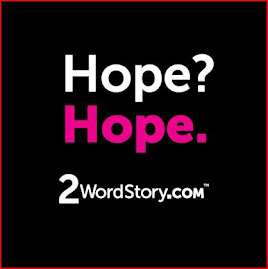



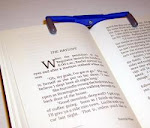







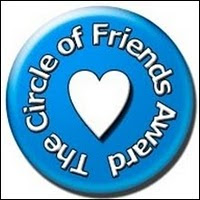




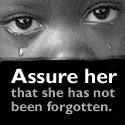

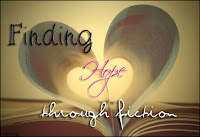



.jpg)





